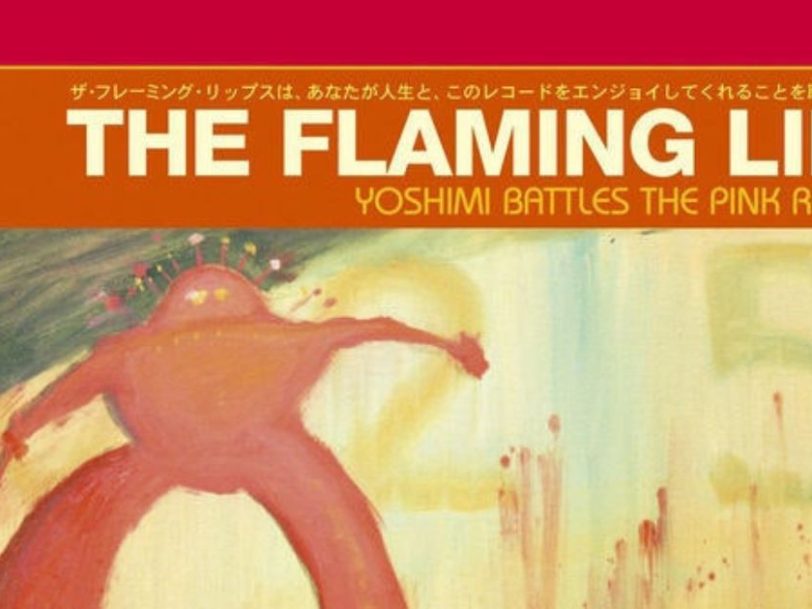As the 90s came to a close, The Flaming Lips staged an unlikely career turnaround, shifting from anarchic noiseniks to purveyors of sumptuous dream pop. Their landmark ninth album, 1999’s The Soft Bulletin, had channelled private reckonings with grief into a cathartic outpouring of emotion hailed as that era’s Pet Sounds. With their audience growing in tandem with their critical standing, the Lips entered the 2000s set on matching their neo-psychedelic excursions with the sounds then taking cutting-edge pop and hip-hop into the charts. More than completing their self-appointed mission, the group re-emerged in the summer of 2002 with Yoshimi Battles The Pink Robots.
“We didn’t want it to sound like The Soft Bulletin at all,” Flaming Lips frontman Wayne Coyne told this author for an interview published in Record Collector magazine in October 2020. “We don’t really know how to make another one of those. And it wasn’t what we wanted to make.”
Listen to ‘Yoshimi Battles The Pink Robots’ here.
“It sounded like weird music disguised as music that could be on the radio”
Across lengthy sessions in producer Dave Fridmann’s Tarbox Road Studios, in Cassadaga, an hour south of Buffalo, New York, The Flaming Lips availed themselves of advances in technology while they sought to harness their obsessions with sci-fi and Big Question themes – love, life, death and the human condition in a rapidly changing world – to a crossover sound that wouldn’t compromise their ambition.
Handing Fridmann a Timbaland remix of a Madonna song, Coyne told the producer, “I think we’re gonna try to make a record like this. Wouldn’t that be fucking fun?” As the singer recalled for Record Collector, Fridmann more than agreed: “I think he secretly was like – and we’re gonna fuckin’ really do it. We’re not gonna get Timbaland to make it. We’re gonna make it.”
With Fridmann himself hitting a peak across recent records by bands such as Mogwai, Mercury Rev and Sparklehorse, and his studio becoming better equipped by the month, the Lips were in the perfect place to realise their goal. “A lot of the programmes and the apps and all the things that were just beginning to happen, in the second that they were happening, Dave Fridmann was on it,” Coyne recalled. “So we’re making a really dense, fucking cool-sounding album, and it’s getting better and better. If we were in there last month, we would go in again, and we’d remix it two months later because there’s more new shit that can make it a little bit more blammo… Then the more that we would do it, it would sound like weird music but it’s sort of disguised as music that could be on the radio.”




